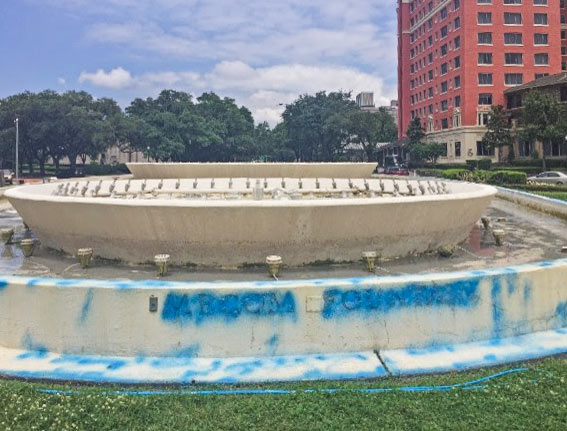
The blue all over the Mecom Fountain on Monday signaled the start of the now-fully-funded work to undo the damage to the 1960s monument caused by the quickly-backtracked application of limestone panels to its exterior earlier this spring. Also on the docket, as the panel damage gets fully repaired: another restoration, this one using architect Eugene Werlin’s original plans (which the fundraising group Friends of the Fountain says it found in a Houston parks department office).
The group says workers are using historically appropriate materials, including Cocoon brand liquid polymer coating (to be layered over the blue primer on the exterior) and Moon Dust plaster (to line the insides of the basins). Here’s a look at parts of the 1964 architectural drawings, which call for Cocoon in the notes:
***
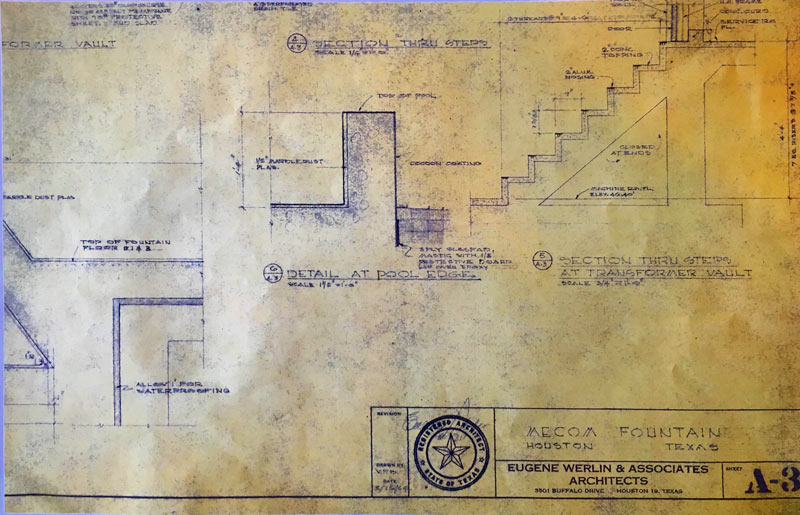
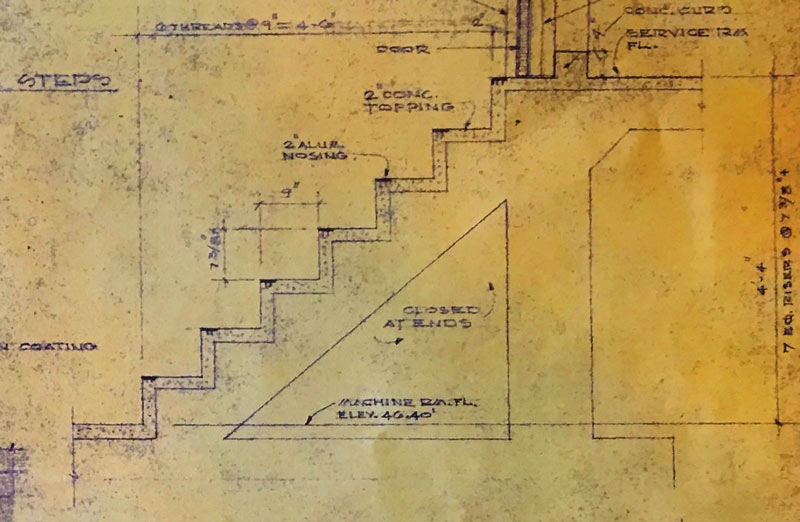 Â
 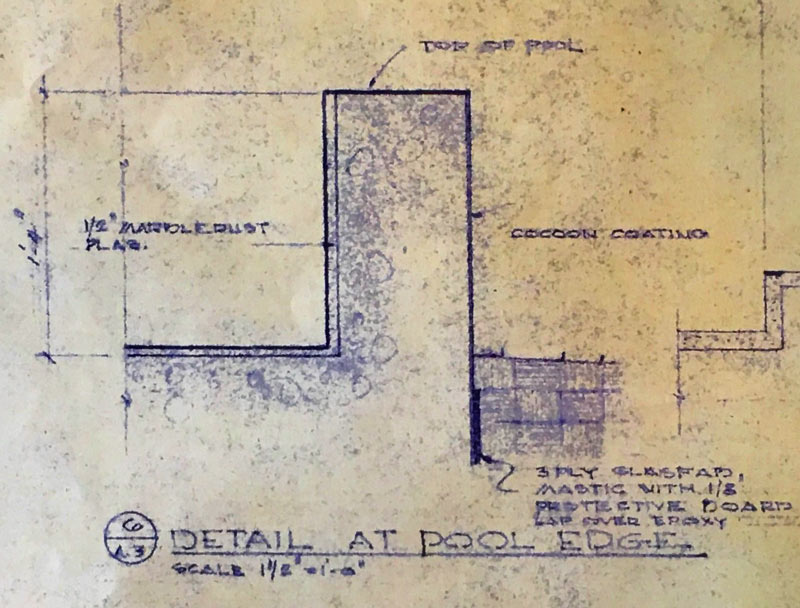
The project organizers, who raised about $104,000 in total through both online crowdfunding and other channels, say they’ve also gotten ahold of the fountain’s original lettering and will re-apply it to the exterior:
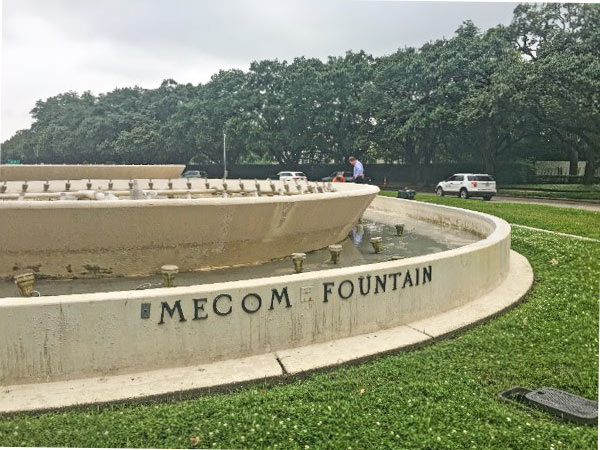
- Mecom Fountain Restoration (Updated)Â [IndieGoGo]
- Previously on Swamplot: Friends of Mecom Fountain: 40,000 Yale St. Bridge Bricks Could Use Some Friends, Too; Private Group Now Trying to Crowdfund the Un-Restoration of the Mecom Fountain’s Basin Wall; Progress on Those Limestone Slabs Getting Screwed Onto the Mecom Fountain
Photos and drawings: Friends of the Fountain




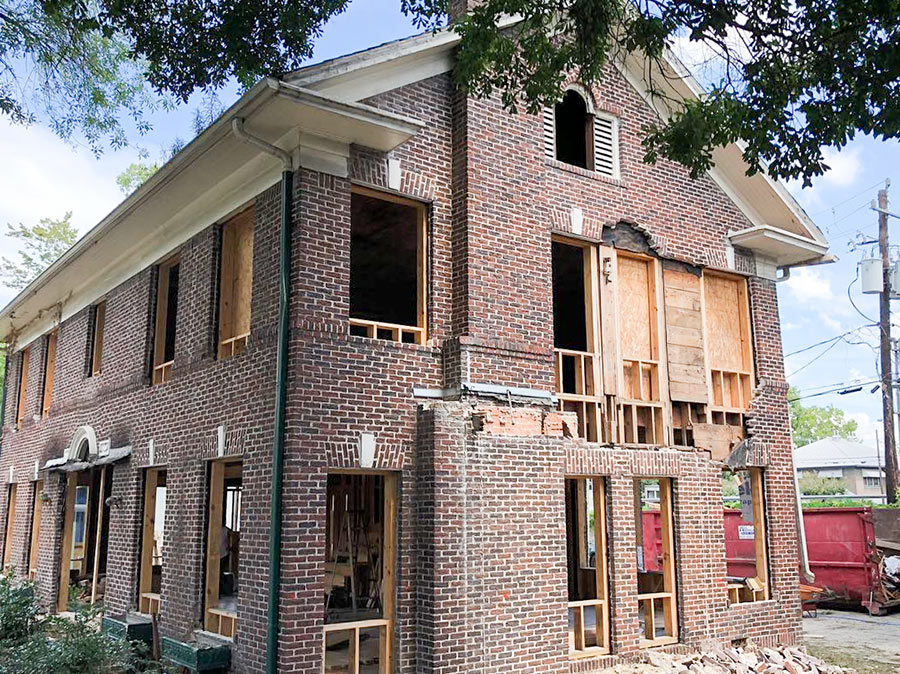
Oh the Mecon Fountain. I know som of my high school buddies dropped boxes of laundry powder and commercial size food dye into the fountains in the mid 1970’s. It was spectacular. I think it made the local news. Of course, there were colored suds flowing onto Main St.
typo: I know SOME….
All the renovations are fine and dandy and needed but are there any measures/renovation additions to prevent idiots from tossing soap into the fountain? ;-)
Yes, the soaping of Mecom used to be fun. Unfortunately, the entire world is on camera so be sure to not let them get a license plate number or a picture of your face.
FINALLY! A piece of ‘Architectural and Urban Planning History’ (from the Mid-Century era I might add) that some find it appropriate and socially responsible to future generations to preserve and maintain the original character and esthetic of well recognized Houston monument.
Now if only the same thing could have been said for the Sterling House, or the Incarnate World Building by Nicholas Clayton, or the Chronicle Building, or the Longhorn Cafe, or the Dome or the Yale Street Bridge, etc… etc… Okay, I will stop now. I know we will never have a REAL protected landmark designation in this City of the ALL-MIGHTY developer… AND as for the Hawthorne Street esplanade issue, SERIOUSLY, SERIOUSLY Montrose Management District!? $556k?
-d-
You’d probably be tried as a terrorist if you put soap in the fountain these days.
.
On another note, who was responsible for the boondoggle that ‘updated’ the fountain to begin with?
I can smell the ammonia just by looking at those pictures! Those were the good old days.
So what do the original plans bring into the picture? Will it just look the same as it did before?
Good question Gary. I’m also curious what difference the cocoon and plaster make.
Hope it looks exactly as it did/was intended. So happy this iconic treasure is getting the attention it deserves.
How is using a 60’s era polymer and plaster coating a good idea? Forget historical factors, I would think that chemistry has evolved enough since then to find a longer-lasting, more durable (and probably less toxic) solution. I guess it’s nice from an intellectual perspective to know that the glue holding the fountain together resembles the original, but those are elements that cannot be seen (much less appreciated) by visitors. I understand with preserving the look, but not this part.